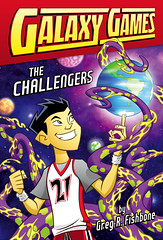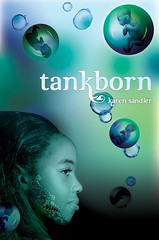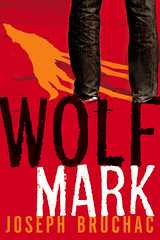More and more teens are getting e-readers in the last year or so. There was a big wave of e-reader purchases for them at Christmas and Hanukkah last year (see this article in the New York Times covering that trend—a NYT article that actually gets it right about children’s books!). E-books are growing, especially in e-books for teens, and with the iPad there’s even potential growth in e-books for younger readers with illustrations.
Teens, particularly, seem suited to e-readers and electronic devices that can carry an e-reading app. For parents who can afford it, e-readers might be the thing that gets that reluctant reader child to get interested in reading again.
Then there’s the flip side of the coin. My friend Sandra Tayler, the mother of four children, recently blogged about the reasons they still do paper books, including with their kids, two of whom are teenagers and two of whom are in middle school. She’s got some great points:
I can hand a child a $7 paper back and not have to police the treatment of the book. Books end up in bathrooms, spattered with snack food, left on floors, buried under piles of clothing, stepped on, shelved, stacked, and read. I could not do the same with a device costing over $100. I would have to keep track of it and spend time training my kids to treat it correctly.
I have four kids. I want them all to be reading, sometimes simultaneously. I don’t want to spend $400-$700 to get enough reading devices for everyone to read at the same time. Additionally we have a house policy that a child can have an electronic device when they care enough to buy it with their own money. This way they have an emotional stake in taking care of the device. If my kids save up $150, they’ll buy an iPod or a 3DS, not an e-reader. They regularly spend $3-$15 buying books for themselves.
One of the best ways to get kids to choose reading is to have books laying around where the covers can catch their interest. Many moments of boredom have resulted in hours of reading because book was laying nearby. This does not happen if all the books are neatly filed on my Kindle.
Physically taking my kids to the library addresses reading in a new way. The kids are able to speak with a librarian and really think about what they are looking for in a book. Then sometimes their favorite books are ones that happen to be shelved near the one that the librarian was showing them. Involving a librarian in the book selection process means a new perspective and opens up new possibilities for the kids.
Owning a physical book and shelving it with their possessions is one of the ways my kids begin to form their identity. Different kids will latch on to different books or series of books. Then they loan them to each other. There is power in being the one who loans or recommends a book. If all the books are organized in the same electronic library my kids will not feel the same sense of ownership.
My children spend a lot of time playing computer and video games. Sitting down with a paper book gives their brains a break from the flicker of screens. It encourages them to switch over into a relaxed way of thinking. I’ve had them read things on my Kindle or Howard’s iPad, they read for shorter lengths of time because the presence of the electronic device is a constant reminder that there are video games in the world and that those video games might be more fun than reading.
In the same post, Sandra talks about how sometimes reading on her e-reader makes her think of work, which I completely agree with. Reading a paper book, for me, is completely unlike work. I know this book is finished. On my Sony Reader—or now on my Nook or Kindle app on my phone—I can read finished books, but I find myself easily distracted because it feels like I’m working, so I keep noticing typos and things that I would have edited a different way. The Reader is the device I read a lot of manuscripts on, so it really feels like I’m editing.
And I notice a lot of the things that make reading an interesting experience for Sandra’s children are the same ones I enjoy: going to the library and browsing, or just browsing my own shelves. Those experiences are tough to replicate on a device, especially for kids. I still read electronically—mostly on long trips or my commute (though if I’m reading electronically on my daily commute, it’s likely a manuscript).
But let’s talk about this in terms of the children’s book industry. As e-books become more ubiquitous, what might the future library or bookstore look like for children? Are there ways to address these very real concerns that a parent has about losing the benefits of siblings sharing books, owning their own physical books, finding a book to relieve boredom, and other reasons that a physical book is so important?
Not all parents will have Sandra’s same concerns. An only child won’t have sibling concerns, or some parents might prefer a more minimalist look in their house over owning possessions. But however you feel about any individual point, Sandra’s concerns in general reflect a lot of thoughts I’ve been hearing from other parents. Sandra’s reasons are the same reasons I don’t think paper books will ever go away entirely. Yet I also think that we need to think about usability in more than just the actual reading process in our rush to convert to e-books, and think about innovating ways that address these very real parental and sibling needs. Heck, they’re not just parental/sibling. I need these things too when I go to the library or am bored, and I’m a single adult woman who lives alone. Sure, it’s easier for me as a tech-savvy adult to just go look for a book on Amazon or even on my library’s website, where I can check out electronic books (and it’s so easy to do so–the books return themselves, which is something I have difficulty with doing on time in real paper!). But as Sandra notes in the rest of her post, there are ways to get distracted from that if I go onto a multipurpose device like a computer.
If you’re in publishing, how do you see our industry and libraries addressing these issues in the future? If you want to get into publishing as an editor or other industry professional, these are issues you’ll be dealing with as the industry continues to evolve. Maybe your generation will—should—innovate something that my generation never would have thought of?


